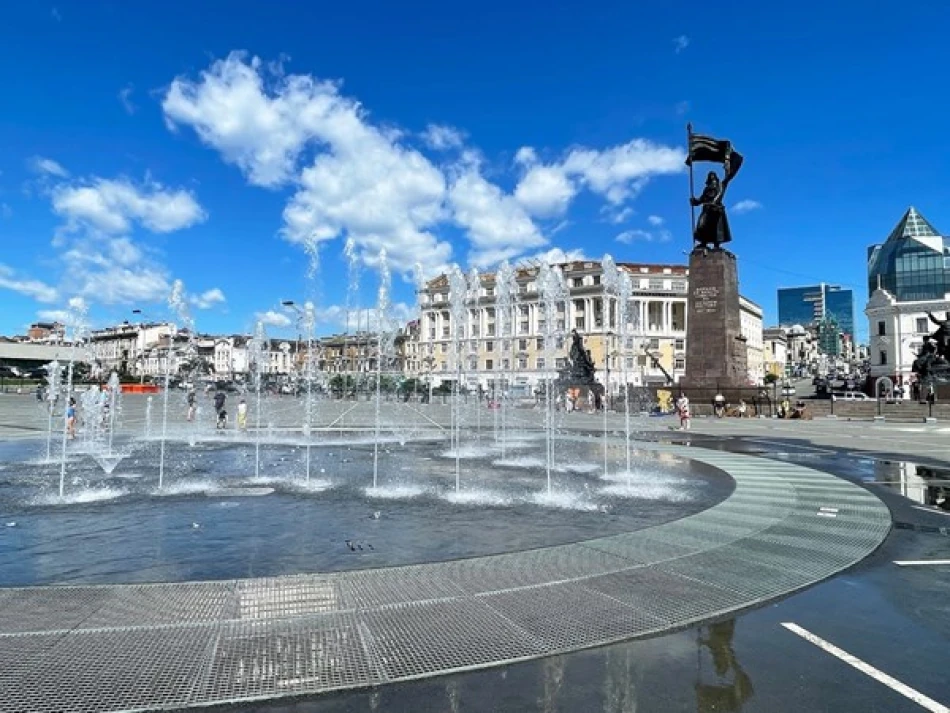
Russian Far East Economic Forum Kicks Off in Vladivostok, Spotlighting Regional Development
Russia's Far East Forum Seeks Asian Investment Pivot as Moscow Doubles Down on Eastern Strategy
Russia's Eastern Economic Forum launched its tenth edition in Vladivostok today, drawing representatives from over 70 countries as Moscow intensifies efforts to redirect economic partnerships toward Asia amid ongoing Western sanctions. The three-day event, running until September 6, positions Russia's Far East as a gateway for regional cooperation, with President Vladimir Putin expected to outline new investment opportunities in a region increasingly central to Russia's economic future.
Strategic Timing Amid Global Realignment
The forum's theme, "Far East: Cooperation for Peace and Prosperity," reflects Russia's broader pivot toward Asian markets following the deterioration of relations with Western economies. With substantial delegations from Vietnam, India, China, Laos, Malaysia, and Thailand confirmed, the event underscores Moscow's strategy to compensate for reduced European investment through deeper Asian partnerships.
Last year's forum attracted over 7,100 participants from 75 countries, generating 313 agreements worth more than 5.5 trillion rubles ($60 billion), including 27 contracts with foreign organizations. This year's organizers expect to surpass those figures, signaling growing international interest in Russian Far East opportunities.
Economic Significance for Regional Development
The Russian Far East represents a critical frontier for Moscow's economic diversification efforts. Rich in natural resources including oil, gas, minerals, and timber, the region has historically struggled with underdevelopment and population decline. The forum serves as Russia's primary vehicle for attracting foreign investment to reverse these trends through special economic zones and preferential business conditions.
Investment Incentives and Infrastructure Focus
The forum's agenda emphasizes infrastructure development, resource extraction partnerships, and technology transfer agreements. Russia has established multiple special economic zones across the Far East, offering tax breaks, simplified regulations, and streamlined bureaucracy to foreign investors willing to commit long-term capital to regional projects.
Geopolitical Implications for Asian Markets
For Asian economies, particularly China and India, the forum represents an opportunity to secure favorable access to Russian resources and markets. China's Belt and Road Initiative aligns naturally with Russia's eastward economic orientation, while India's growing energy needs make Russian partnerships increasingly attractive despite Western pressure.
The forum also serves as a counterweight to Western economic isolation efforts, demonstrating Russia's ability to maintain international business relationships through alternative partnerships. This dynamic forces Asian nations to balance their relationships with both Western allies and Russia, often prioritizing economic pragmatism over geopolitical alignment.
Putin's Strategic Vision
President Putin's scheduled address will likely emphasize Russia's commitment to Asian integration while highlighting investment opportunities in energy, transportation, and technology sectors. His participation underscores the forum's importance to Russia's long-term economic strategy and signals continued state support for Far East development initiatives.
The forum's success will be measured not only in signed agreements but in actual capital flows and project implementation over the coming years. For Russia, transforming the Far East into a genuine economic hub remains essential for reducing dependence on European markets and ensuring long-term economic resilience in an increasingly multipolar world.
Most Viewed News

 Layla Al Mansoori
Layla Al Mansoori






